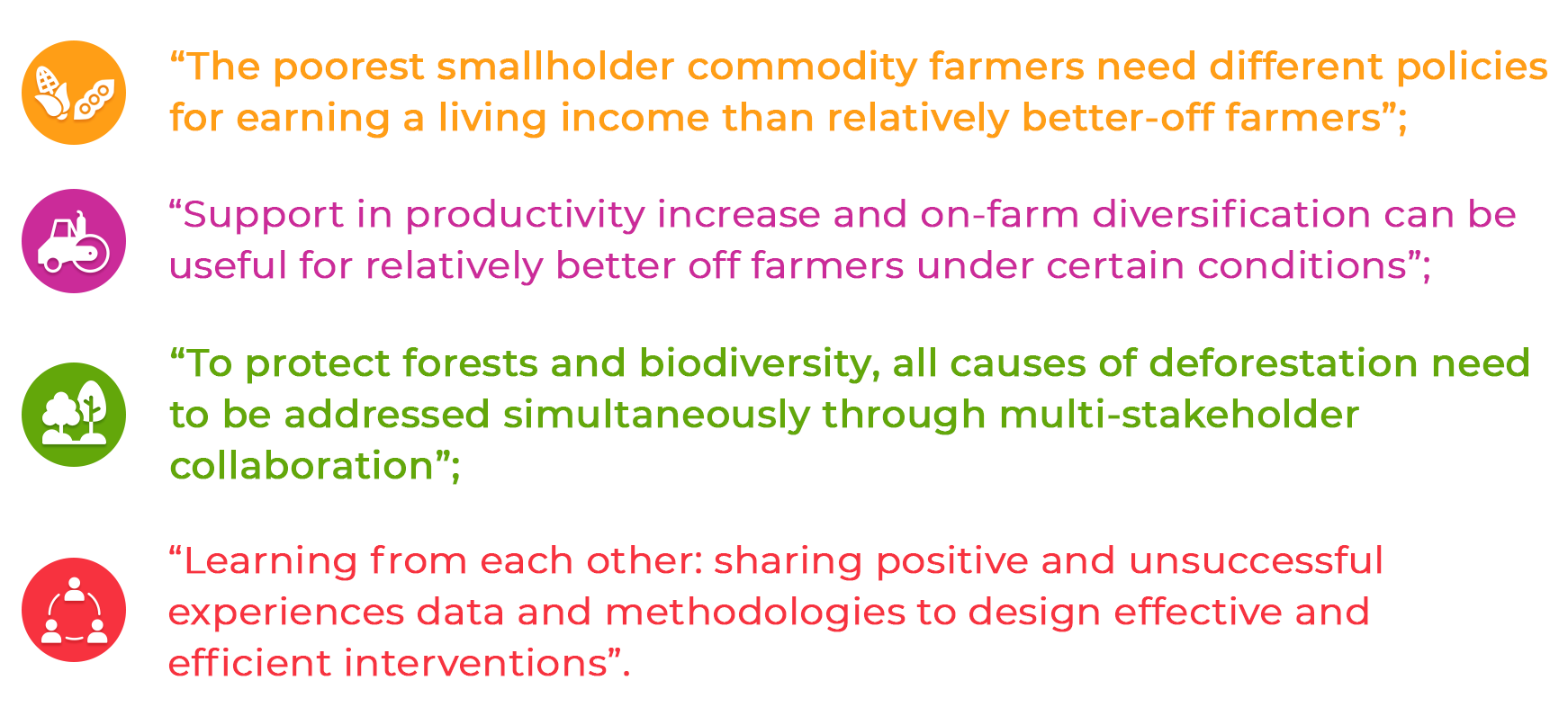Increasing smallholder farmer income: a pathway to reduce environmental impact and land conversion?
There are a number of intricate and complex issues involved when the discussion comes to sustainable development, biodiversity protection, global heating, land conversion and commodity supply chains.
The Food and Agriculture Organization of the United Nations states that burning fossil fuels followed by land use change, especially deforestation, are the two biggest leading causes of climate change[1]. Deforestation destroys vegetation and biodiversity that is essential for removing carbon dioxide from the air, while clearing the forests also produces greenhouse gas emissions.
Agricultural expansion in High Conservation Value (HCV) areas together with the lack of sustainable funding are heavily associated with land degradation, biodiversity loss and land conversion. The private and public sectors may play a different role in this scenario, taking into account different business models and practices. Strategies may address causes instead of outcomes, identifying main drivers of deforestation and establishing effective measures to reduce it in various contexts.
Why are smallholder farmers so important?
The global agricultural food industry relies on smallholder farmers (family farms), who produce food for global supply chains[2].
Efforts in implementing sustainable agricultural practices contributes to smallholder livelihood and life quality in many aspects. Recognizing that in many parts of the world there is a significant gap between the reality and sustainable agricultural practices and food/feed production, the ProTerra Foundation issued regional interpretations of its standard, for instance The ProTerra Standard for Smallholders, focusing on the necessity to support the continuous improvement of agricultural activities, especially amongst smallholders [3].
Smallholder farmers are often vulnerable to risks such as drought, floods, and price instability limiting their benefits from agricultural production. They rely on the forests for their food and livelihoods and, at the same time, their actions and activities may have a high impact on deforestation.[4]
Then, how can we unlock the potential of smallholder farmers and transfer it in a partnership aimed at sustainable agriculture and curbing deforestation?
Research findings
Recent studies have been carried out focusing on strategies and interventions (programs, activities, initiatives) to empower smallholder farmers to move out of poverty and achieve a decent standard of living for their households. [5]
The Living Income Community of Practice[6] defines living income as:
“The net annual income required for a household in a particular place to afford a decent standard of living for all members of that household.”
Global food supply chains will never be sustainable if farmers cannot afford a decent standard of living from their earnings, such as, food, water, housing, education, healthcare, transport, clothing, and other essential needs.[7]
In 2018, Farmer Income Lab[8] carried out a research, reviewing hundreds of studies on interventions (programs, activities, initiatives) to empower smallholder farmers to move out of poverty, as this issue has been a focal point with the public sector, civil society and industrial sector. The research evolved and experts from academia, civil society, philanthropic and industry sectors were added to the team of experts.
More recently, in November 2019, researchers from Wageningen University & Research published a white paper on sustainable commodity production (“A living income for smallholder commodity farmers and protected forests and biodiversity: how can the private and public sectors contribute?”[9]), focusing on cocoa, tea, coffee and oil palm sectors. The study presents interesting findings, including:

Other good reasons for businesses to[10] engage with smallholders and to set up long-term, strategic partnerships are: human rights, reputation and supply security.
Visit our site to learn more about sustainable production and how your business activities can help to conserve natural resources and ensure that local communities are treated with dignity and respect: www.proterrafoundation.org
[1] http://www.fao.org/state-of-forests/en/
[2] https://www.farmerincomelab.com/sites/g/files/jydpyr621/files/2019-09/What%20Works_FINAL_9.19.pdf
[3] https://www.proterrafoundation.org/wp-content/uploads/2019/09/26082019-ProTerra-Standard-Smallholders-India-final-10-09.pdf
[4] http://www.livelihoods.eu/why-small-farmers-are-crucial-in-the-fight-against-deforestation/
[5] https://www.farmerincomelab.com/
[6] https://www.living-income.com/the-concept
[7] https://www.fairtrade.net/issue/living-income
[8] https://www.farmerincomelab.com/
[9] http://library.wur.nl/WebQuery/wurpubs/fulltext/507120
[10] https://c69aa8ac-6965-42b2-abb7-0f0b86c23d2e.filesusr.com/ugd/0c5ab3_610a7c299a5b4563a2889f70080a06a8.pdf